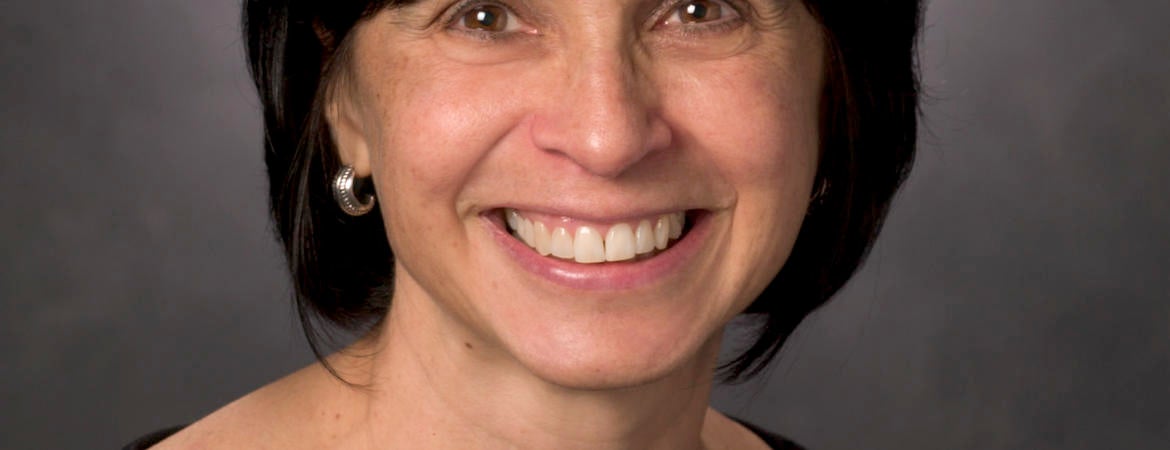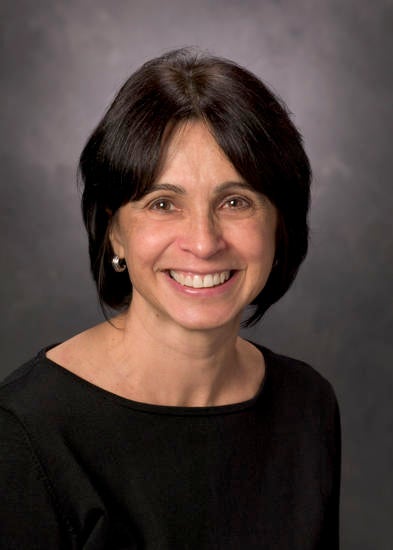
RIVERSIDE, Calif. – Susan R. Wessler, a world-renowned expert in transposable elements, a crucial facet of genetics, has accepted an appointment as a distinguished professor of genetics in the Department of Botany and Plant Sciences at the University of California, Riverside. She will arrive on campus in September 2010.
Wessler was elected in 1998 to the National Academy of Sciences (NAS), the most prestigious scientific organization in the United States, as a result of her research that “provided the most comprehensive picture of the interaction between transposable elements and plant genes,” according to the NAS citation.
Transposable elements are DNA sequences that move from one location in the genome to another. They are known also as “jumping genes.”
A Howard Hughes Medical Institute Professor, Wessler currently holds a Foundation Chair in the Biological Sciences at the University of Georgia, where she has been on the faculty since 1983.
Her Howard Hughes Medical Institute program is funded by a grant to pursue a project titled “The Dynamic Genome: Introducing Evolution to Undergraduates,” which she has been leading for three years. The project teaches computational and experimental tools of genome analysis to students as early as their freshman year.
“As we mobilize to sustain the campus’s competitive advantage in science, technology, engineering, and mathematics, Dr. Wessler brings a superb record of achievement in both research and science education,” said Chancellor Timothy P. White. “She adds a further prominence to our already strong genomics group.”
Discovered in the 1940s, for years transposable elements were thought to be unimportant and were called “junk DNA.” Scientists now recognize that transposable elements play vital roles in gene and genome evolution.
Wessler’s work has transformed our understanding of genome evolution by showing how transposable elements diversify genes and genomes and, in doing so, contribute the raw material used by plants and animals to adapt to an ever changing environment.
“UCR is a perfect fit for my research and teaching programs,” Wessler said. “Its strength in plant genomics research is well known, and I look forward to interacting with a dynamic faculty in this area. In addition, I am delighted that my teaching program fits in well with the vision of the chancellor, to better serve the student body and the community. I plan to expand my teaching program and bring the excitement of discovery-based science to more students.”
Wessler has pioneered an experimental and forward-looking teaching style by replicating her research program as an undergraduate classroom laboratory where students are often the first to analyze transposable elements in genomes by using both computational and experimental approaches.
“These experiences tend to be irresistible to students, making science the focus of their lifetime career goals,” said Natasha Raikhel, the director of UC Riverside’s Institute for Integrative Genome Biology, of which Wessler is a member.
Thomas Baldwin, dean of the College of Natural and Agricultural Sciences, noted that Wessler’s teaching program represents a new and promising development in the teaching of science.
“We are collaborating with the Graduate School of Education to establish a joint program in science education for Dr. Wessler to continue her valuable work in getting students not just trained, but excited about science,” he said.
Said Steven Bossert, dean of the Graduate School of Education, “Collaborating with Dr. Wessler to create and study innovative, hands-on laboratory learning experiences for undergraduates will motivate our students and enhance our efforts to improve science teaching on campus and in our local schools.”
Wessler received a B.S. with honors in biology from the State University of New York at Stony Brook in 1974 and a Ph.D. in biochemistry from Cornell University in 1980. She joined the University of Georgia faculty after a postdoctoral appointment at the Carnegie Institution.
In addition to NAS membership, her honors and awards include the Creative Research Medal and the Lamar Dodd Creative Research Award from the University of Georgia; fellow of the American Association for the Advancement of Science; Southeastern Universities Research Association Distinguished Scientist Inaugural Award; and fellow of the American Academy of Arts and Sciences.
She is an editor for many important journals in her field. She holds two patents and has filed a third. She co-authored a leading genetics textbook, Introduction to Genetic Analysis, and has authored or co-authored more than 100 articles, books, and book chapters.
Wessler’s appointment brings to four the number of current UCR faculty who are NAS members.
She will earn an annual base salary of $235,000.
